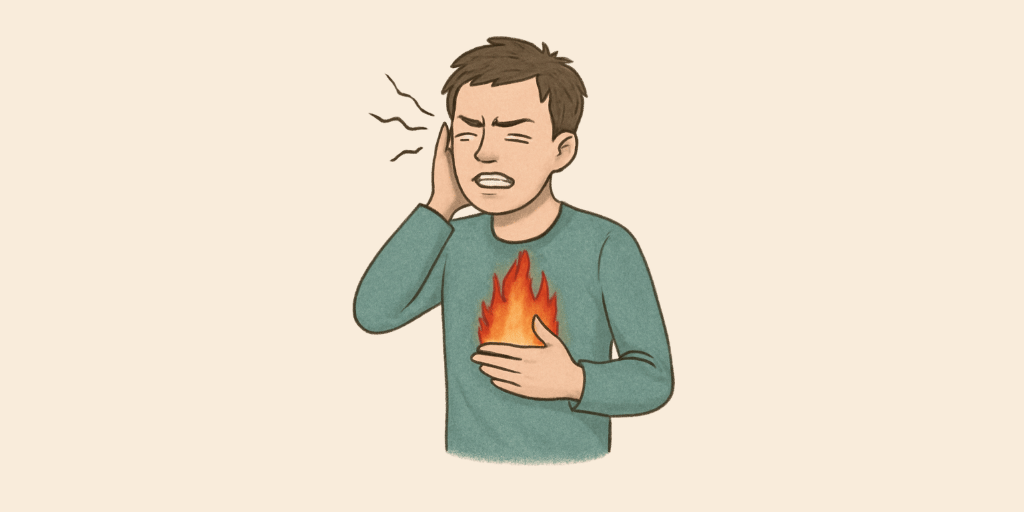Ayurvedic Name: Amlapitta
Description:
Amlapitta refers to hyperacidity or acid reflux, where excessive Pitta leads to burning sensation in the chest, sour belching, and nausea. Aggravating factors include spicy foods, stress, and irregular eating habits. Ayurvedic remedies include Avipattikar Churna, Shatavari, Amalaki, and alkaline foods to balance Pitta.
Signs & Symptoms:
- Amlapitta (Hyperacidity): Acidic taste in the mouth, often accompanied by a burning sensation in the chest or throat (heartburn).
- Vishama Agni (Irregular Digestion): Difficulty digesting food, leading to bloating and discomfort.
- Trishna (Excessive Thirst): Increased thirst due to the body’s response to acidity.
- Rukshata (Dryness): Dryness in the mouth and throat, especially after meals.
- Shwasa (Breathlessness): Difficulty in breathing, particularly after eating or drinking acidic foods.
- Kasa (Cough): A persistent cough that worsens after meals or when lying down.
Diagnosis:
Upper GI Endoscopy and pH Monitoring
Risk Factors:
- Dietary Factors
Spicy, Fatty, and Fried Foods: Consuming spicy, rich, or oily foods can irritate the stomach lining, leading to acidity.
Excessive Caffeine or Alcohol: Overuse of caffeine or alcohol can lead to an increase in stomach acid, causing hyperacidity. - Lifestyle Factors
Stress and Anxiety: Emotional stress can trigger acid production in the stomach, leading to acidity and heartburn.
Irregular Eating Habits: Skipping meals or eating late at night can increase acid production and disrupt digestion. - Medical Conditions
Gastritis or Peptic Ulcers: Inflammation of the stomach lining or ulcers can result in hyperacidity.
Gastroesophageal Reflux Disease (GERD): Acid reflux often leads to increased acidity and discomfort in the chest.
Complications:
- Gastritis (Udar Shotha): Chronic hyperacidity can lead to inflammation of the stomach lining, resulting in gastritis or ulcers.
- Heartburn (Hridaya Shoola): Frequent acid reflux and heartburn are common symptoms of hyperacidity.
- Stomach Ulcers (Amlapitta Graha): Prolonged hyperacidity can result in the formation of stomach ulcers or gastric bleeding.
- Indigestion (Agnimandya): Hyperacidity can impair the normal digestive process, leading to bloating, gas, and indigestion.
- Increased Risk of Cancer (Roga-Samyogam): Long-term untreated hyperacidity and gastritis increase the risk of stomach cancer.
Epidemeology:
Affects 10-15% of the population, with a higher prevalence in adults aged 30-50.
More common in individuals with poor dietary habits, stress, and smoking.
Increased prevalence in developed countries due to high-fat, processed diets, and sedentary lifestyles.
Common in individuals with gastroesophageal reflux disease (GERD) or peptic ulcers, with 30-40% of individuals experiencing occasional symptoms.

